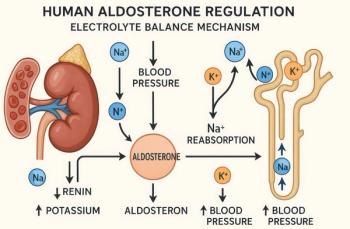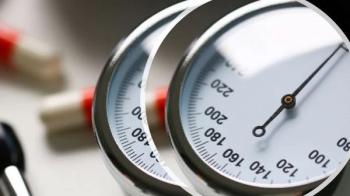
Coffee By the Bucket Better for Blood Pressure than By the Cup
UTRECHT, The Netherlands -- Coffee for women, and its effect on their blood pressure, is an exception to the maxim that moderation in all things is a good approach to life, contend researchers here.
UTRECHT, The Netherlands, March 23 -- Coffee for women, and its effect on their blood pressure, is an exception to the maxim that moderation in all things is a good approach to life, contend researchers here.
Women who drink coffee by the pot full for a long time had a lower relative risk of hypertension than did women who indulged in one to three daily cups, Cuno S.P.M. Uiterwaal, M.D., of the University Medical Center, Utrecht, and colleagues, reported in the March issue of the American Journal of Clinical Nutrition.
The effect on blood pressure of a lot of coffee did not hold for men, the investigators found in their longitudinal cohort study. But both men and women who abstained from coffee had a lower relative risk of hypertension than light coffee drinkers.
"The most important merit of our study is the elucidation of the role of coffee intake through its relation with hypertension in increasing the risk of cardiovascular disease," they wrote.
"Although there are reports claiming coffee to be hazardous, the larger cohorts show no association between coffee intake and cardiovascular morbidity or mortality or with the prognosis of myocardial infarction," they added.
They concluded that the effect of coffee on hypertension risk as it relates to cardiovascular may be immeasurably small.
"A practical implication from our findings would therefore be to abstain from professional advice concerning coffee intake in normotensive individuals, which indeed agrees with the latest clinical guidelines on hypertension," they wrote. "We cannot preclude that associations between coffee intake and cardiovascular outcomes are different among hypertensive individuals."
The investigators looked at the relationship between blood pressure and coffee consumption in 2,985 men and 3,383 women who took part in two general population studies of risk factors for chronic diseases.
The patients, with a mean age of 40 at study entry, had baseline visits during which they filled out detailed questionnaires on medical history, lifestyle habits, and diet, including coffee consumption.
The participants were asked how many cups of coffee per day they drank, type of coffee (regular, decaf or other), and whether they added milk or sweeteners. The participants had follow-up visits at six and 11 years.
Hypertension was defined as a mean systolic blood pressure of 140 mm Hg or higher over both follow-up measurements, a mean diastolic of 90 mm Hg or higher over both follow-up measurements, or the use of antihypertensive medication at any follow-up.
The authors found that people who never drank coffee at all had a lower risk for hypertension than light coffee consumers -- those who drank between one and three cups daily. The adjusted odds ratio for coffee abstainers versus light drinkers was 0.54 (95% confidence interval, 0.31-0.92).
On the other end of the scale, women who drank more than six cups of coffee per day had a lower hypertension risk than women who drank between zero and three cups (adjusted odds ratio 0.67; 95% CI: 0.46-0.98).
Men who did not drink coffee also had a lower risk relative to those drank one to three cups daily (adjusted odds ratio 0.60 (95% CI, 0.24-1.49), but adjusted odds ratios for the other two consumption categories, four-to-six cups, and more than six cups daily, were close to 1.00 (1.08, 95% CI 0.79-1.47 and 1.03, 95% CI, 0.72-1.46, respectively).
The authors also found an association between age, hypertension, and coffee consumption. Men and women age 39 and over at baseline had 0.35 mm Hg lower systolic pressures for every cup of coffee they drank daily (95% CI: -0.59 to - 0.11mm Hg), and 0.11 mg Hg lower diastolic pressure (95% CI, -0.26 to -0.03 mm Hg) compared with younger participants, but the latter was not statistically significant.
Newsletter
Enhance your clinical practice with the Patient Care newsletter, offering the latest evidence-based guidelines, diagnostic insights, and treatment strategies for primary care physicians.

































































































































